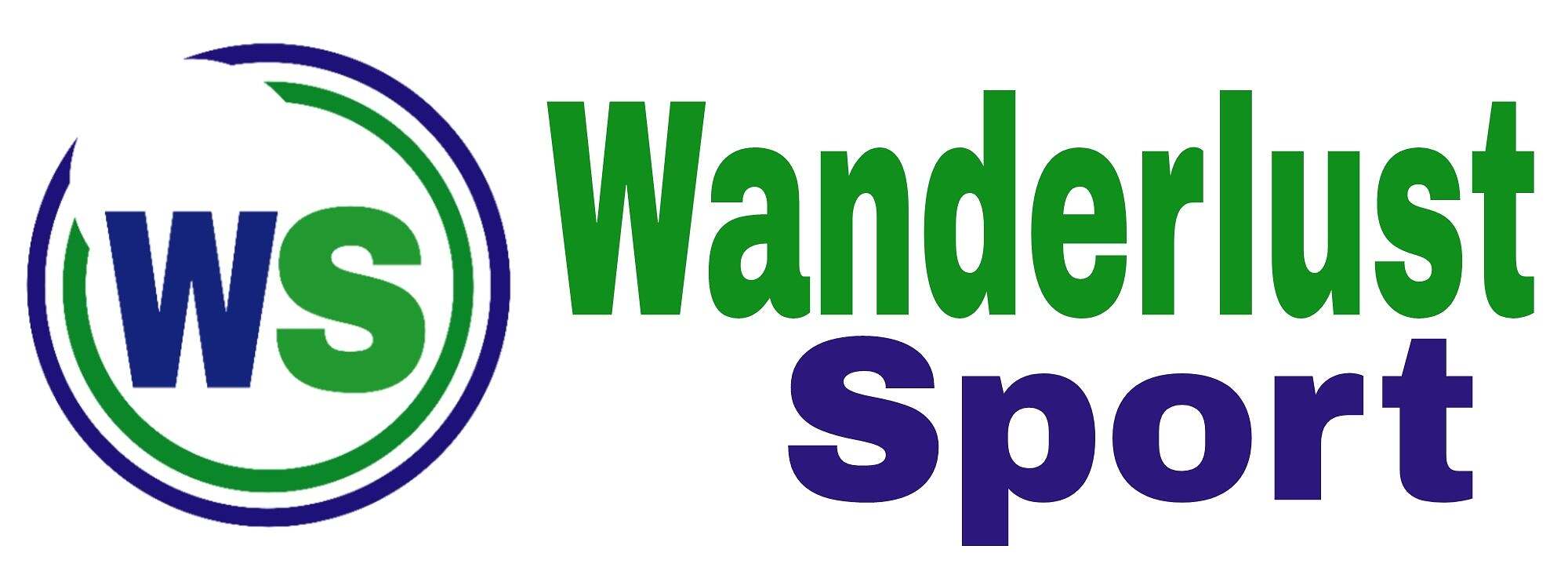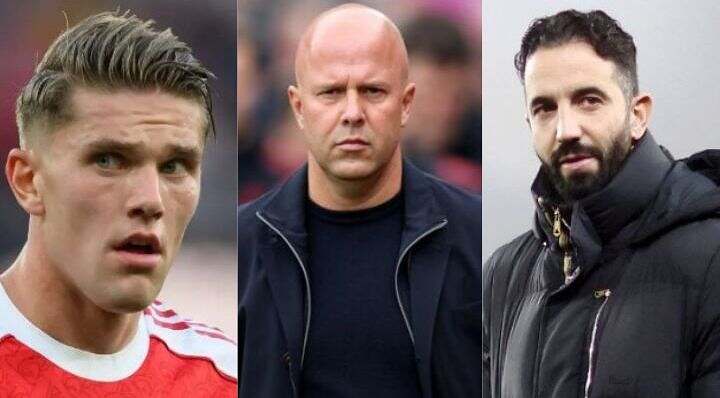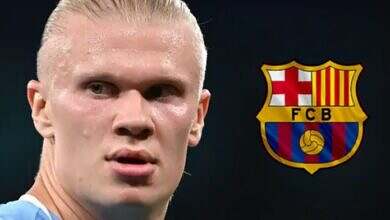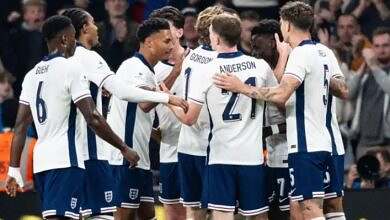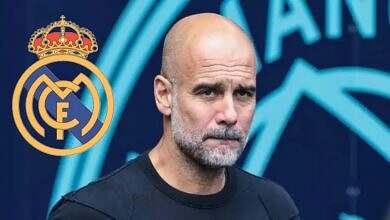Are Manchester United Still Up for Sale? Ratcliffe’s Role Questioned as £4.79bn Bidder Walks Away
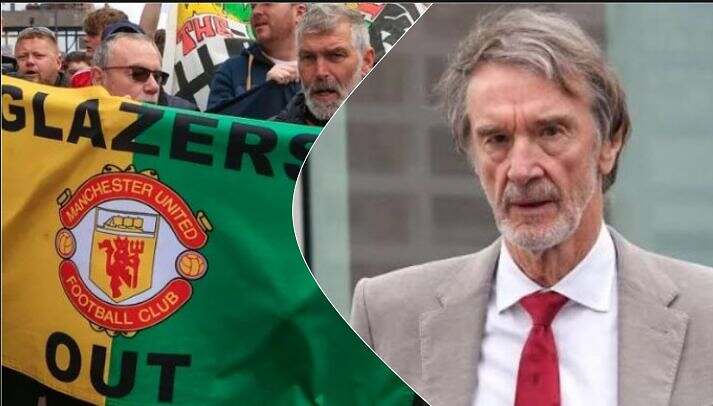
Does anyone want to buy Manchester United? What prompted the chairman of the Saudi General Entertainment Authority to intervene? What do Sir Jim Ratcliffe and the Glazers think?
After years of waiting for a bus, two eventually appear in a few years, but the first fires everyone and keeps making cheesy remarks about free lunches, while the second one may not even exist.
Once more, the takeover machine for Manchester United has left the station. But after two decades of being plagued by a guilty conscience formed by a leveraged acquisition, have the Glazers finally decided to sever their ties?
Trending
Is Sir Jim Ratcliffe too old to be voluntarily putting up with this bullshit? Or is there an enigmatic third alternative that involves a consortium that idolises Ousmane Dembele and “can generate billions for the club”?
To try to clarify exactly what is happening, it seems like a good idea to have a brief Q&A session.
Is Manchester United ready to be sell by the glazers?
Not apparently, at least. In February 2024, Ratcliffe’s INEOS only paid £1.25 billion to acquire a 27.7% share in the club; when the final payment of an additional £238 million financial infusion to improve the club’s infrastructure was made in December 2024, that stake had increased to 28.9%.
That gives INEOS Limited, which is held by Ratcliffe, Andy Currie, and John Reece, the board director of Manchester United, 28.9% of the outstanding shares and voting rights.
It also gives them power over football operations, which has been used egregiously and is unlikely to be given up anytime soon.
Ratcliffe just promised to uphold Ruben Amorim’s three-year contract in its full; they were not the words or deeds of a man looking to sell.
The six American siblings still own 67.9% of the voting rights, and the Glazer family still owns 48.9% of all outstanding shares.
The Glazers and INEOS are the only “two entities [who] hold greater than 10% of the voting rights in Manchester United plc,” according to the club’s official website.
It is quite doubtful that either party will wish to yield their shares, and offers are rarely being encouraged in any case, even though the adjustments to that ownership structure have not produced the performance that INEOS would have hoped for or the Glazers might have anticipated.
So what’s the noise of the takeover about ?
Essentially, it consists of a few quotes thrown into the gap of a global break. The controversy was started by Turki Al-Sheikh, the chairman of the General Entertainment Authority, a government agency tasked with growing Saudi Arabia’s entertainment industry, who posted on X:
The most exciting thing I’ve heard today is that Manchester United is now close to finalising a sale agreement with a new investor. Hopefully, he will be superior to the prior owners.
Later on, he stressed that the reported deal “may not necessarily happen” and that he was “not the investor, nor are they from my nation.”
A few days later, a well-known name appeared in the news cycle once more: Thomas Zilliacus, who was returning to occupy any available place at the highest table.
After battling with a fellow Manchester United bidder for an awkward portion of 2023—whom Ratcliffe subsequently implied “nobody’s ever seen” and may not even “exist”—Zilliacus took advantage of the sudden uproar to reintroduce his proposals into the discussion.
“Joining forces with the right parties with the sole aim of bringing Manchester United back to where it should be as the number one club in the world” is what the Finnish former Nokia CEO and founder of XXI Century Capital hinted at.
He said he would “have nothing against working with people like Jim Ratcliffe or any investor, whoever that may be,” and that “the opportunity is still there” to invest.
He also made another fan-friendly jab at the Glazers for “not doing what should be done.” In a clear jab at Ed Woodward, Zilliacus also acknowledged his admiration for players like Ballon d’Or winner Ousmane Dembele and claimed he would “never have brought a player like Neymar to Manchester United.”
A “United Arab Emirates-based consortium” was allegedly “meeting Manchester United officials in London” on Monday.
When questioned privately, Manchester United has so far denied the reports; it appears that there is a lot of smoke without fire in this situation.
The Glazers aren’t ready to sell Manchester United, is that correct?
Although it is impossible to predict their moves, the Glazers have shown no signs of wanting to sell any more of their stock.

However, the INEOS acquisition of a minority stake has some intriguing fine print that is still relevant. A “drag-along rights” clause was included in that agreement, and it was set to go into effect 18 months after the original investment and last until February 2027. In August, the mechanism went into effect.
Theoretically, it facilitates a company’s full sale by preventing a minority shareholder from impeding any agreement that the majority wants to reach.
This means that Ratcliffe would have to sell his portion of the agreement if the Glazers were able to find someone who was ready to purchase all of Manchester United’s shares.
Should such agreement be reached prior to February 2027, the share price needs to surpass the $33 Ratcliffe paid. Following that, it may be lower.
In addition, INEOS had first dibs on any shares the Glazers wished to sell; however, that right expired in August without having to be exercised.
Within the club, there is a perception that the Glazers are more than satisfied with the ownership arrangement, which allows them to keep overall control of an extraordinarily profitable investment while also serving as a great lightning rod for criticism of INEOS and Ratcliffe.
What would Manchester United sell for, and are there any other possible bidders?
Sheikh Jassim Bin Hamad Al Thani is the only bidder that stands out in the current rumours due to his absence.
When he tried to purchase all of Manchester United’s shares for £4.79 billion in 2023, his takeover effort was unsuccessful because he kept failing to produce proof of financing.
Although Jassim “has kept an eye on developments and is aware of the clause,” Chris Wheeler of the Daily Mail has implied that there is “zero interest” in taking action.
Several reasons are given, including the media’s scepticism of his interest, the fact that Jassim allegedly sent “legal letters” to Manchester United and Ratcliffe at the time, Qatar’s wish to concentrate on other initiatives, like securing the 2036 Olympics, and PSG’s success, which made purchasing another club “less attractive because someone else has already been there and done it in Europe.”
Although it is thought that Jassim has “moved on,” if enough encouragement were offered, there would be plenty of potential customers throughout the Middle East.
With a present valuation of £4.3 billion, Manchester United would be the most expensive football team ever sold if it were sold now at the minimum price of $33 per share that Ratcliffe is legally entitled to.
“Manchester United is a premium brand, a complete buyout would be at least £5bn but then a significant spend would be required on and off the pitch,” financial expert Kieran Maguire recently told SPORTbible, expressing his belief that the cost would be considerably higher.
“Despite all the rumours circulating [around] the club, the current stock market value is about £3 billion, which is 15% lower than at the end of June, suggesting the market is sceptical about whether a full-blown bid is likely.”
You can definitely understand why there is a greater desire to resolve the numerous problems rather than sell up if this complete mess is worth at least £5 billion.
